Cat liver failure when to euthanize? I know that bidding farewell to your lovely cat is one of the most difficult decisions of your life. Let’s face it. Sometimes, euthanasia is synonymous with the cessation of a current painful existence. That way, it is a better choice for your fur friends.
Cat liver failure when to euthanize? Life is precious and no cat owners want to euthanize one of their old friends just for their convenience. But it is not always that case. Are you happy to see your friends in misery, for example, feel the building up of toxins in his/her body or suffer from the rough stress of hospitalization? That’s when euthanasia is not the worst nightmare but a pain-free and peaceful choice.
How To Know If Your Cat Has Liver Failure?

How To Know If Your Cat Has Liver Failure?
If anything amiss is noticed, it is important to visit your vet to diagnose your cat acute liver failure. They will take several good physical and run labs. And to get to the root of the health problem and obtain a definitive diagnosis as soon as possible, your veterinarian will also need to know your cat’s age, breed, complete health history, and symptoms before doing all these tests like blood tests, biopsy, a complete blood count, a bile acids tolerance test, X-rays, and urinalysis, etc.
What is Cat Liver Failure?
Your cat will be diagnosed with the liver disease - Cat Liver Failure (also known as cat hepatic failure) if its liver loses 70 percent or more of its mass function – the ability to perform more than 1,000 tasks before symptoms may present all of a sudden.
What are the causes of Cat Liver Failure?
The damaged liver results in the development of liver disease. There are a lot of causes resulting in cat severe liver necrosis such as heat stroke, ingestion of toxins, fatty liver disease, starvation, poor accumulation of fluid into the liver, tumors, shortage of breath, a portosystemic shunt, toxoplasmosis, and even the use of Tylenol without your vet’s bill.
Cat Liver Failure Symptoms & Signs
Keep on reading to know some of these symptoms and signs you should look out for:
- Decrease or loss of appetite;
- Sudden weight loss from anorexia;
- Jaundice (yellowing of the skin, gums, inner ears, whites of the eyes, or mucous membranes);
- Increased thirst;
- Vomiting the food you give or diarrhea;
- Abdominal distention – sleepy all the time;
- Sudden changes in their behaviors and habits;
- Excessive drooling;
- Blood in the stool;
- Seizures;
- Swollen abdomen due to the filling of fluid;
- Weakness, depression, and lack of energy and enthusiasm;
If you see any of the above signs and symptoms of liver failure in your cat, it’s high time to schedule a visit to your veterinarian. Have your cat’s health checked through various tests and you will know whether he/she has liver failure or not. However, it is not always easy to recognize the signs of liver disease as they are not really specific.
Check us out to find some Astounding Facts about cats
Should We Euthanize Cat With Liver Failure?

Should We Euthanize Cat With Liver Failure?
How Important Is The Liver?
The largest prime internal organ located beneath the diaphragm, the liver performs a lot of vital functions such as produce different distinctive enzymes to help digest and convert nutrients, remove toxic substances from the blood, regulate chemicals in the blood, and store minerals and fat-soluble vitamins, etc.
How To Treat Liver Failure in Cats?
Thanks to the fundamentally new advances in the veterinary emergency, critical care, and healthcare technology, new ideas for medical technology innovations as well as improved medical and technical management, both morbidity and mortality in the sick pets with deep-rooted reversible liver failure will definitely be reduced. How to treat liver failure in cats? Some of the treatments are:
- Antibiotics;
- Fluid Therapy;
- Feeding Tube;
- Intensive nutritional support to help remedy the effects;
- Anti-nausea, antiulcer, and coagulopathy medications;
- Plasma transfusion;
- Cytoprotective agents;
Looking for more stuffs to keep your cats comfortable? Visit our Bed Collection and Scratching Posts anytime you want!
Cat liver failure when to euthanize?
You have the ability to control your cat’s life. However, this premier power should be used intelligently with your friend’s health condition and convenience in mind. For young and healthy cats, liver failure is not a tough disease to treat. But for older cats, it can be a painful experience. Is there any responsible pet owner out there happy to see their friends in misery, for example, feel the build-up of toxins in his/her body or suffer from the rough stress of hospitalization? That’s when you should think about “Cat liver failure when to euthanize?”
Advantages of Euthanasia
“Which is better and less painful - to be euthanized or to gradually die of liver failure (as he/she will not eat or drink anymore)?” – it might be the biggest question to come into any cat’s owner. You have the right to make a choice between a quick and mercy-killing release from a bad-quality of life existence with a fatal dose of a drug and a lingering, suffering end. Your cats and how miserable the quality of their life should always be the first things to think about!
Why is euthanasia concerned? Its very first and most important pro is that it is often peaceful and mostly pain-free option to prevent further helpless state and suffering of the dying. Another pro is that it is a fast and gentle blessing for the terminally ill.
I know that choosing euthanasia is such a challenging task for any cat owner. Take time to weigh up the pros and cons of the humane end for your cat's pain and suffering versus further serious treatment. Sometimes, your close friends do not deserve this kind of painful treatment.
The Process of Euthanizing a Pet

The Process of Euthanizing a Pet
On the D-day, to make your pet more comfortable, your vet will give a shot of sedative to your cat before giving him/her the euthanasia drug - a dose of vibrantly colored pentobarbital that will quickly stop the heart. It’s time to help them easily cope with their pain and to let her go!
Looking for more interesting Healthy Cats Guide? Visit Cattybox!
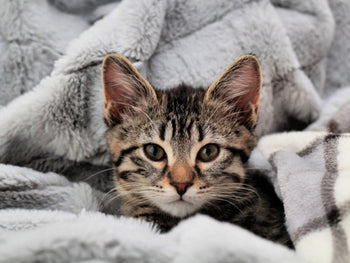
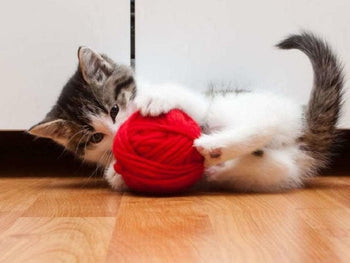

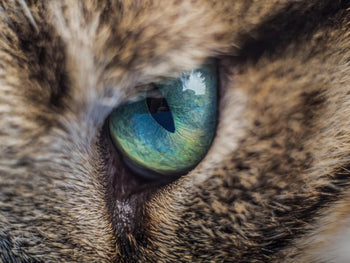
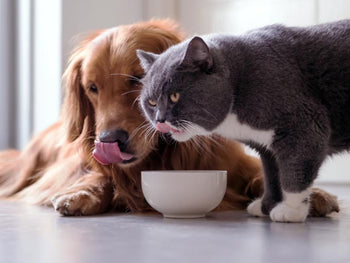

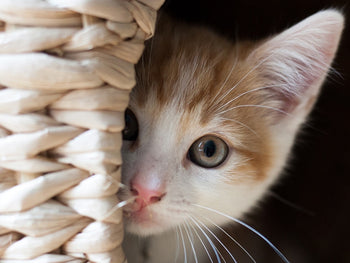
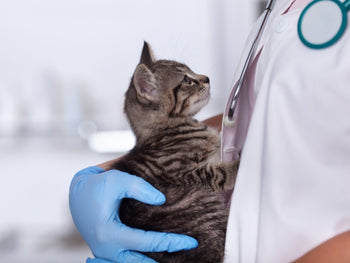
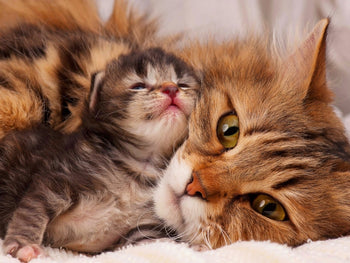

I have been looking at the liver disease for 🐱 cats on this website. I have enjoyed your posts. 😁This has been very informative and enlightening for me, as I have never had a cat with Yellow Jaundice before. I will continue to read your posts. Thank you so much ☺️ 🐱🙋♀️❤️
I have been looking at the liver disease for 🐱 cats on this website. I have enjoyed your posts. 😁This has been very informative and enlightening for me, as I have never had a cat with Yellow Jaundice before. I will continue to read your posts. Thank you so much ☺️ 🐱🙋♀️❤️
My 6 year old female tabby cat was in really good health until August but since then hasn’t been well, had biopsies sent to America for analysis etc. and was diagnosed with probable liver failure or cancer. She’s on steroids, antibiotics and a couple of other boosting drugs but the enzymes are still staying high. Today she saw her Specialist who told me this. She hasn’t eaten or drunk water all day, not having used her water bowl for ages and I have given wet food with water added. It has seemed to be going okay but the results at her Vet are still the same. They said to bring her back tomorrow if she hasn’t eaten. Can anyone offer any advice? I don’t want her to have more invasive treatment she’s had so much with blood tests etc.
My sweet boy has been dealing with not being well awhile now (liver enzymes high). The other day, he stopped eating, gave me a whimpering meow, and stayed on the sofa for 36 hours, I knew it was time this time. It was hard because he still purred like crazy when I would pet him. At the vet’s, the vet used a “sleepy medicine” first which was a sedative. This was not only easier on him, but me too as when the final injection was given, I did not notice your little baby’s life leaving as he is already quite limp from the sedative…..little Oliver is now over the Rainbow Bridge.